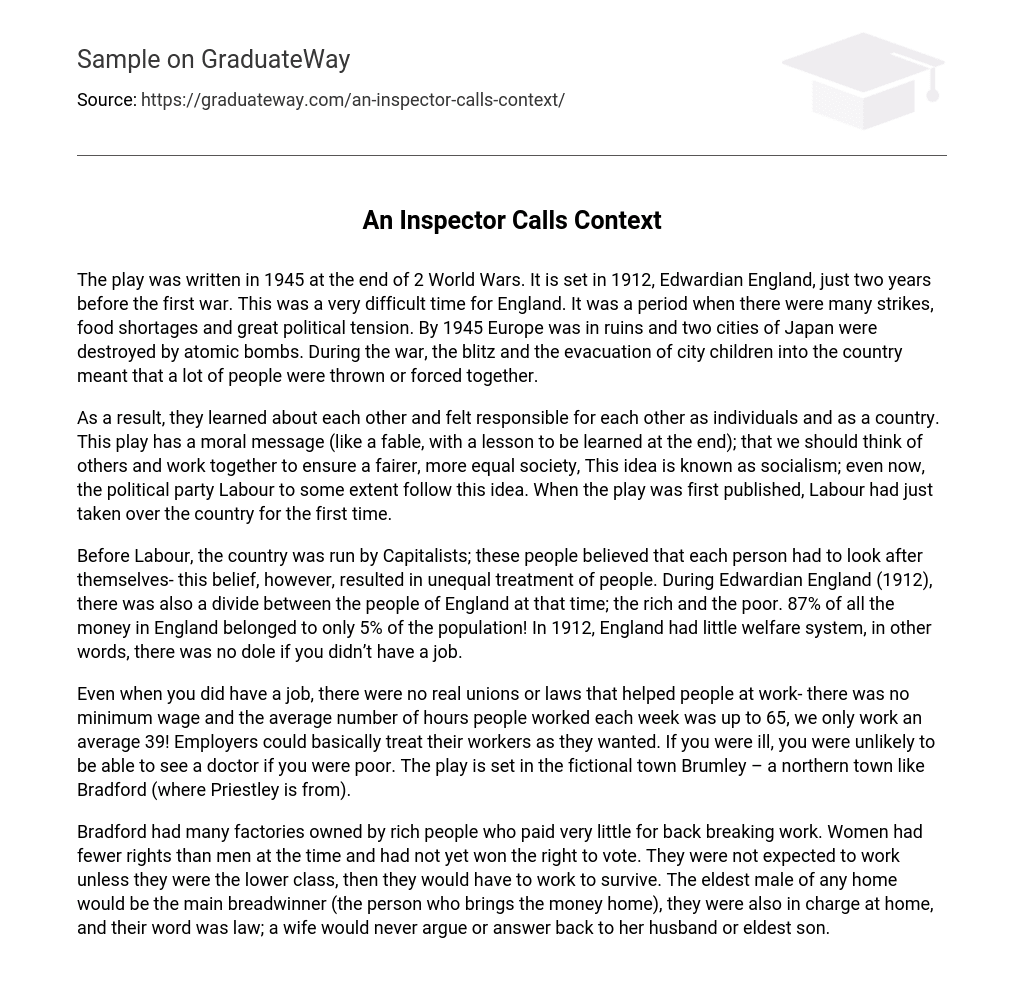The play was written in 1945 at the end of 2 World Wars. It is set in 1912, Edwardian England, just two years before the first war. This was a very difficult time for England. It was a period when there were many strikes, food shortages and great political tension. By 1945 Europe was in ruins and two cities of Japan were destroyed by atomic bombs. During the war, the blitz and the evacuation of city children into the country meant that a lot of people were thrown or forced together.
As a result, they learned about each other and felt responsible for each other as individuals and as a country. This play has a moral message (like a fable, with a lesson to be learned at the end); that we should think of others and work together to ensure a fairer, more equal society, This idea is known as socialism; even now, the political party Labour to some extent follow this idea. When the play was first published, Labour had just taken over the country for the first time.
Before Labour, the country was run by Capitalists; these people believed that each person had to look after themselves- this belief, however, resulted in unequal treatment of people. During Edwardian England (1912), there was also a divide between the people of England at that time; the rich and the poor. 87% of all the money in England belonged to only 5% of the population! In 1912, England had little welfare system, in other words, there was no dole if you didn’t have a job.
Even when you did have a job, there were no real unions or laws that helped people at work- there was no minimum wage and the average number of hours people worked each week was up to 65, we only work an average 39! Employers could basically treat their workers as they wanted. If you were ill, you were unlikely to be able to see a doctor if you were poor. The play is set in the fictional town Brumley – a northern town like Bradford (where Priestley is from).
Bradford had many factories owned by rich people who paid very little for back breaking work. Women had fewer rights than men at the time and had not yet won the right to vote. They were not expected to work unless they were the lower class, then they would have to work to survive. The eldest male of any home would be the main breadwinner (the person who brings the money home), they were also in charge at home, and their word was law; a wife would never argue or answer back to her husband or eldest son.





